READY TO GET STARTED?
REQUEST A FREE ESTIMATE
Fill out the form below or call (888) 466-7849 for a free, no-obligation estimate.
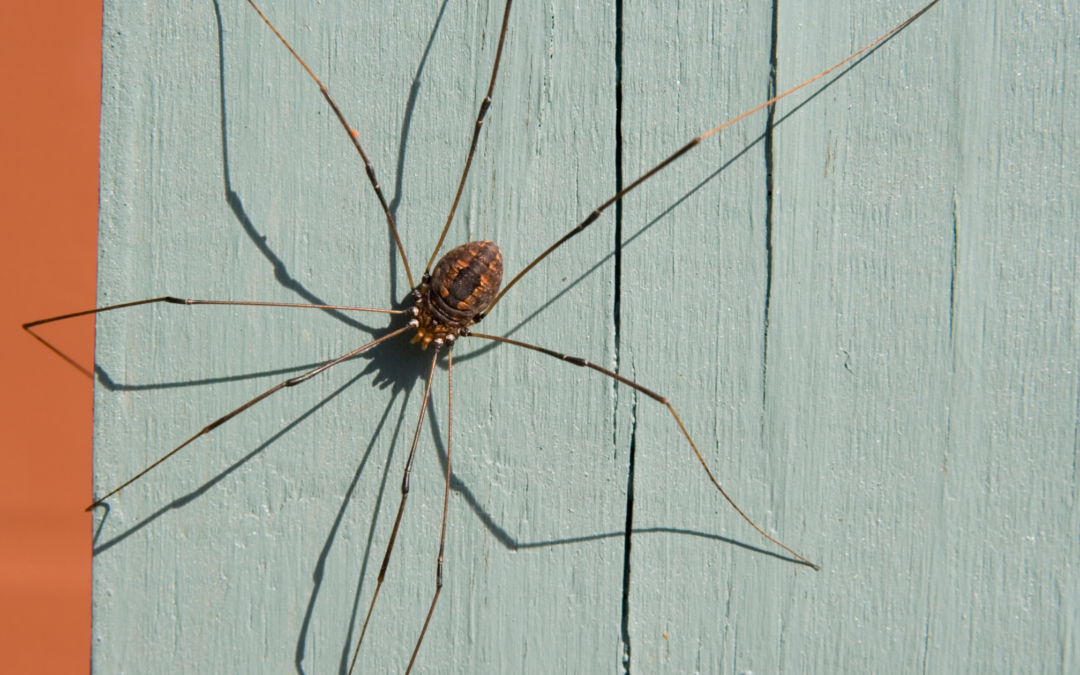
Is a daddy long legs a spider or fly? It’s a common question that often leads to confusion. Let’s delve into the facts to unravel this mystery and understand more about these fascinating creatures.
Contrary to popular belief, daddy long legs are not spiders but belong to the order Opiliones, also known as harvestmen. While they may resemble spiders due to their long, slender legs, they differ in various aspects, including body structure and behavior. Unlike spiders, daddy long legs do not produce silk, lack venom glands, and have a single body segment rather than two distinct segments (cephalothorax and abdomen).
Identifying daddy long legs is relatively straightforward. They typically have a small, oval-shaped body with extremely long, thin legs, giving them their distinctive appearance. These creatures are commonly found in damp, dark areas such as basements, crawl spaces, and garages. They are also known to seek refuge indoors during colder months, making homes a prime habitat.
While daddy long legs are harmless and beneficial predators, their presence indoors can be unsettling for some. To prevent them from entering your home, consider the following measures:
Don’t let pests like daddy long legs disrupt your peace of mind. Take proactive steps to safeguard your home with expert pest control services. Contact a pest control company near you today to request a free quote and learn more about our spider control and general pest management solutions.
You can enjoy a pest-free home and peace of mind knowing that your property is protected against unwanted intruders. Say goodbye to daddy long legs and other pests with comprehensive pest control services.
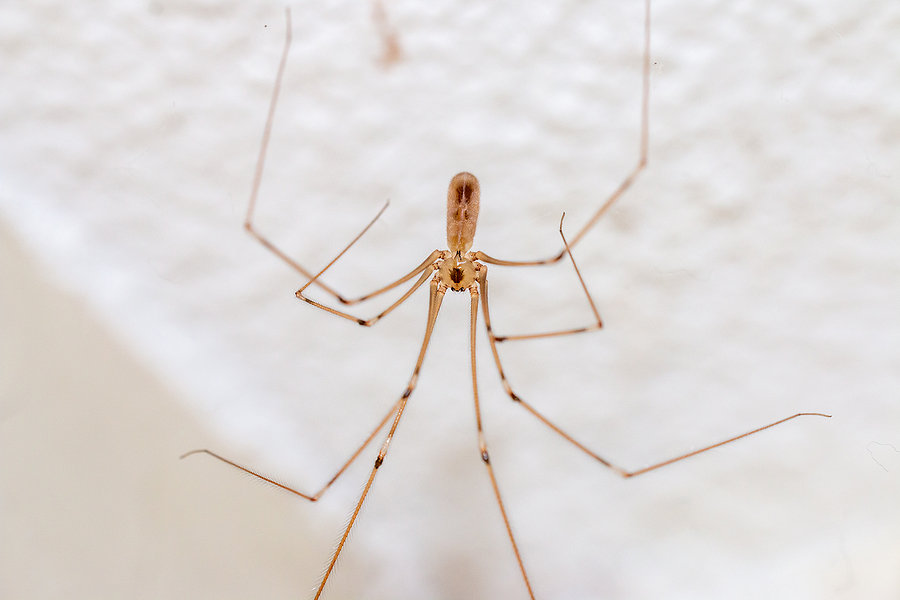
Georgia is no stranger to household pests. One common visitor that many Georgians encounter is the daddy long legs, a unique arachnid that often finds its way into homes. In this blog post, we’ll explore what attracts daddy long legs, how to identify them, reasons for a daddy long legs infestation, whether they pose a threat to humans, and effective ways to prevent and eliminate them. If you’re dealing with a daddy long legs infestation, read on for valuable insights and practical solutions.
Daddy long legs, scientifically known as Opiliones, are not true spiders but belong to the arachnid family. They are characterized by their long, thin legs and small, oval-shaped bodies. Unlike spiders, daddy long legs have a fused body structure and lack venom glands. Their appearance can sometimes be confused with cellar spiders, but the absence of a segmented body distinguishes them.
Understanding the reasons behind daddy long legs entering homes is crucial for effective control. These arachnids are attracted to damp and dark environments, making basements, crawl spaces, and garages ideal habitats. Additionally, they are opportunistic feeders, preying on small insects and other arthropods found in and around homes. The presence of abundant prey can draw daddy long legs indoors.
The good news is that daddy long legs are not harmful to humans. Contrary to popular myths, they do not possess venomous fangs and are not capable of biting. In fact, these arachnids play a beneficial role by feeding on other pests, helping to control insect populations around your home. While their presence may be unsettling to some, daddy long legs pose no direct threat to your health.
To keep daddy long legs at bay, consider implementing the following preventive measures:
If you’re dealing with a daddy long legs invasion or any other pest issues in Georgia, don’t hesitate to reach out to our expert team. Request a free pest control quote today and let us help you create a pest-free environment in your home. Protect your family and property with our reliable pest control services.
Remember, a proactive approach to pest control is key to maintaining a comfortable and pest-free living space. Contact us now and take the first step toward a pest-free home!
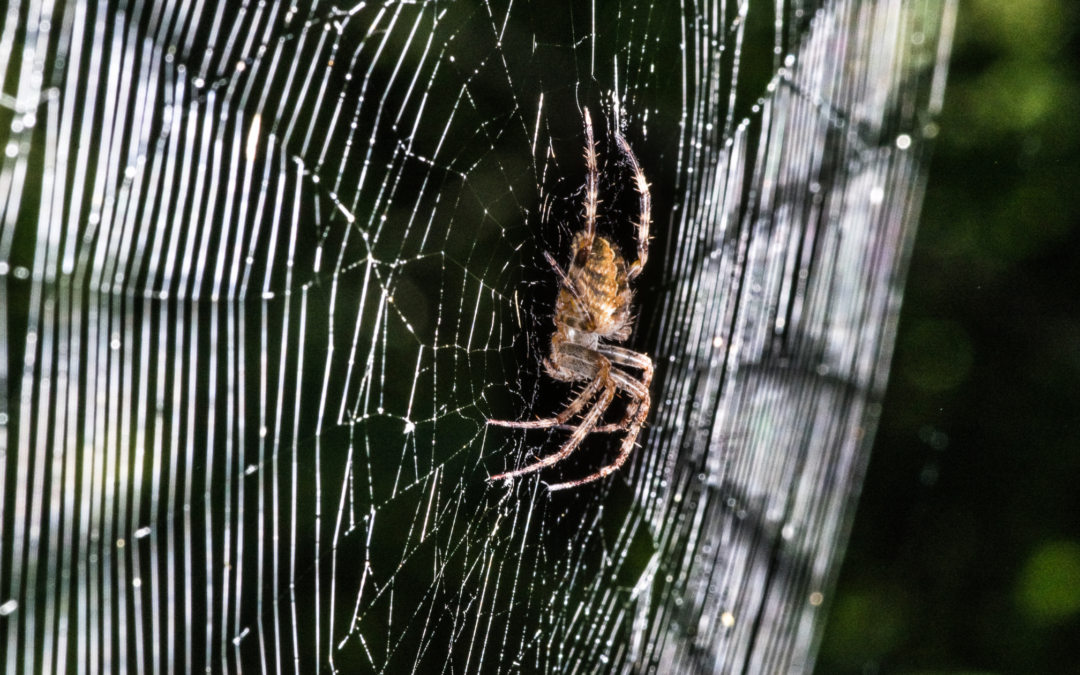
Georgia is home to a variety of fascinating arachnids, including the intricate orb weaver spiders. While these eight-legged creatures play a crucial role in controlling insect populations, encountering them in and around your home can be a cause for concern. In this blog post, we’ll delve into the world of orb weavers, exploring how to identify them, where they commonly reside, and essential tips for prevention and control.
Orb weavers, members of the Araneidae family, are renowned for their distinctive circular webs, meticulously crafted to capture unsuspecting prey. Recognizing these spiders is key to effective pest control. Key features include:
Orb weavers are adaptable and can be found in a variety of habitats, both natural and man-made. In Georgia, you may encounter them in:
While orb weavers are generally beneficial, their presence near your home may cause discomfort. Here are some practical tips for prevention and control:
If you find yourself caught in the web of orb weaver spiders, don’t hesitate to take action. Our experienced pest control team is here to help. Request a free pest control quote today to safeguard your home from unwanted arachnid visitors. Let us weave a plan to keep your space pest-free and comfortable.
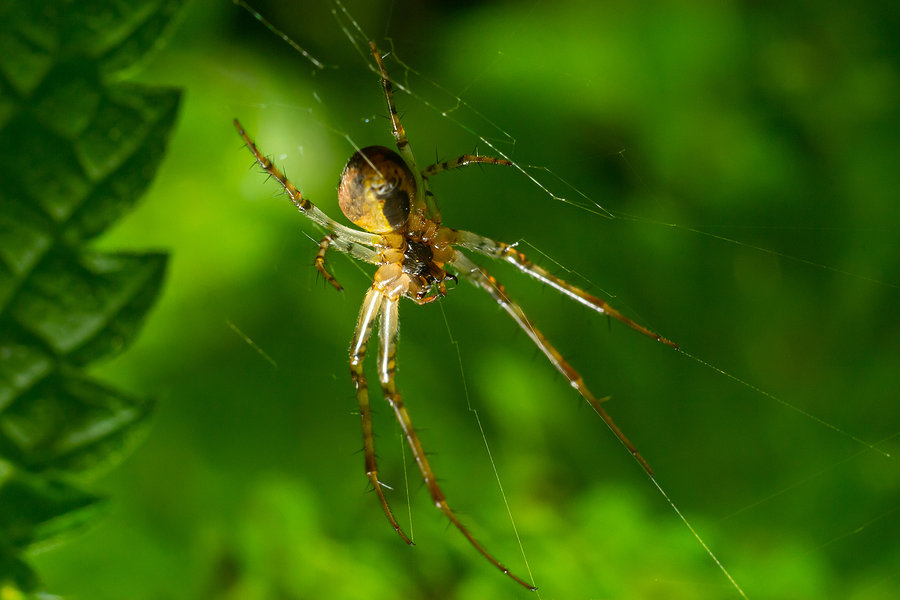
The thought of spiders in your home is enough to make anyone feel a little unsettled, but these household pests are actually beneficial to have around. They are a natural form of pest control, keeping other pest populations like mosquitoes and flies under control in and around your home. Although there are a few venomous spiders found in our area, most others are harmless and don’t pose a threat to you or your family. While it’s not realistic to expect to eliminate every spider from your home, you can make it less inviting for them to help keep them out without the use of harsh chemicals or pesticides. Here are 7 natural spider control remedies you can use around your home.
There are several plants you can place inside and outside your home to naturally deter spiders from coming around. Lavender, mint, eucalyptus, and citronella are known to deter spiders from building their webs near them. If incorporating these plants into your landscaping isn’t a possibility, you can also spray essential oils with these scents, in addition to peppermint or tea tree oil, anywhere spiders are a problem. You can also crush mint and place it in sachets inside your cabinets or other areas where spider activity is high.
Spiders are masters of hide and seek. They can be found hiding in cracks, crevices, cabinets, knotholes, behind baseboards, inside seldom used items in your home (such as shoes), under rocks, in woodpiles, and under piles of leaves and dirt. By getting rid of these hiding places you can encourage spiders to seek shelter somewhere besides in your home. Move leaves, grass clippings, compost and woodpiles away from your exterior walls. Dust and declutter your home on a regular basis. Frequently dust any areas where cobwebs appear. Organize your storage areas and get rid of any empty boxes.
Spiders spin webs to trap their prey as a food source. If you come across spider webs either inside or around your home, remove them as soon as possible. Eventually the spiders will move on and build their webs somewhere else.
While spiders aren’t attracted to your outdoor lights, other pests that they feed on are. Mosquitoes, flies, gnats, and other common prey for spiders are drawn to your outdoor lights, providing a literal buffet for a waiting spider. Keep your outdoor lights off as much as possible to help cut down on your outdoor pest populations.
Diatomaceous earth is a crumbly material made of the fossilized remains of an algae called diatom. DE can be sprinkled on the ground around your home and used as an insecticide. DE kills several pests in addition to spiders and can be used around your family and your pets.
There are some organic substances that work as natural repellents for spiders. Vinegar is a common one. The acetic acid in vinegar gives a sour taste and odor to spiders who come into contact with it. Mix equal portions of vinegar and water in a spray bottle and spray it around your home, especially in areas where pests may be getting inside. Citrus is also a natural spider deterrent. Keep citrus fruits in a bowl on your kitchen counter and use the leftover peels to rub onto your windowsills and doors to help keep spiders out.
Spiders can get in through the tiniest cracks and crevices in your home. Make sure to regularly inspect the exterior of your home and seal any places where pests might be gaining entry inside. Be sure to check doors and windowsills and use caulk or weatherstripping to seal any cracks and openings.
While most spiders don’t cause any problems in your home, they can become a nuisance, especially in your yard or garden. Webs can be built in inconvenient places; they can cover your plants or hide blooms, stunting their growth. If you have a problem with spiders or need some help getting them under control, contact your local pest control company for an evaluation.
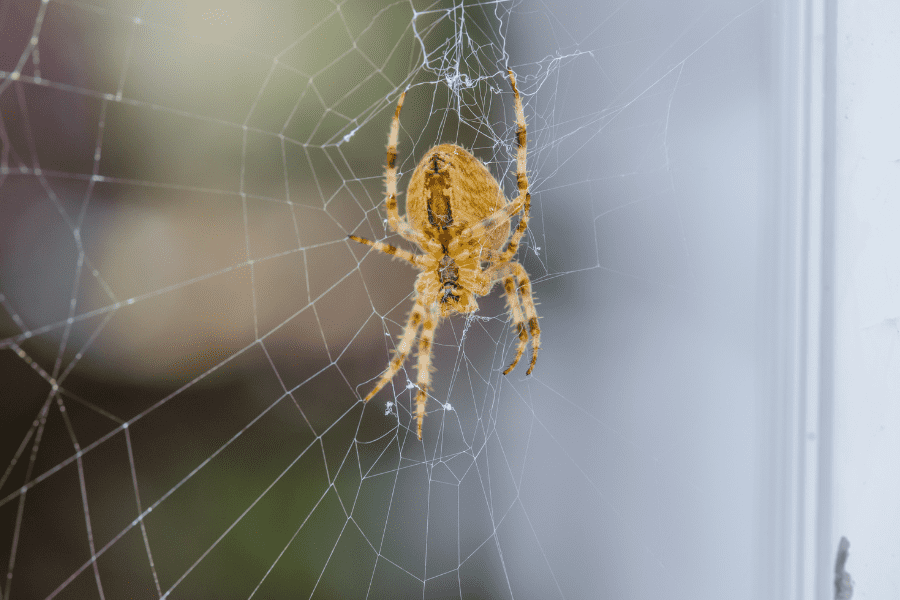
Spiders are often found in secluded areas where they are rarely disturbed. Your home offers the perfect place to hunker down during the winter and provides them with food, shelter, and even a mate.
Spiders feed off other insects, so they can be beneficial for you over time. If you do begin seeing an influx of other insects, it might mean you have a higher population of spiders as well. Your home offers warmth, which is what these overwintering pests are really in search of once winter hits. They will also enter your home due to how easy it can be for them. Any crack, crevice, or opening is an invitation for these pests to enter your home.
Spiders can be considered a form of natural pest control but can be unsightly if discovered in your home. Check out these tips to keep spiders out of your home:
If you suspect a spider problem, then reach out to your local pest control company for a free inspection today!